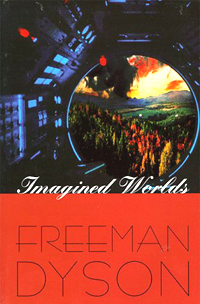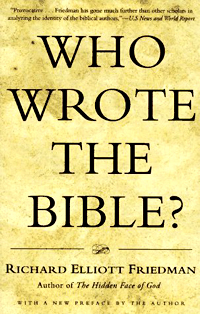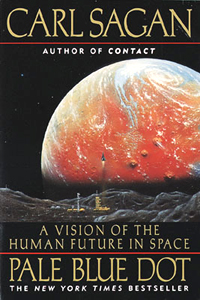 |
| |
| |
 CHAOS: MAKING A NEW SCIENCE CHAOS: MAKING A NEW SCIENCE
by James Gleick
This book is a handful for a literature guy like me. When the talk turns to differential equations and the true nature "unlinearity," I can sometimes be heard snoring in the background. But in the end, I found this book rewarding. Gleick makes technical issues accessible. I am amazed at the original ways in which true pioneers view the world. I am also fascinated by how much we don't know.
If I were a fussy sort of person--which I am not--I would suggest that "chaos" is exactly the wrong word for this branch of inquiry because the phenomena aren't "chaotic" at all, just patterned in ways we don't fully understand. But I am not about to start arguing with a bunch of scientists.
 IMAGINED WORLDS IMAGINED WORLDS
by Freeman Dyson
Freeman Dyson is a physicist who writes well and has a healthy respect for the humanities. This book is brief but large-minded. Dyson reflects upon humanity's possible futures--both short term and extremely long term--by considering the interplay of science, ethics, technology and evolution. An excellent read.
 WHO WROTE THE BIBLE? WHO WROTE THE BIBLE?
by Richard Elliot Friedman
Being a literature guy, questions of text and context interest me. The title of this book is misleading. Friedman only analyzes the first books of the Old Testament. But he writes accessibly and with a strong narrative thread. He pays close attention to the texts themselves, to the context in which they were written and to the history of textual analysis that has shaped our thinking about them. You don't have to be a religious person to enjoy this book.
If you like this sort of thing, you might also try Who Wrote the New Testament: The Making of the Christian Myth by Burton L. Mack. He doesn't write with quite the felicity of Friedman but is accessible and interesting.
 PALE BLUE DOT: A VISION OF THE HUMAN FUTURE IN SPACE PALE BLUE DOT: A VISION OF THE HUMAN FUTURE IN SPACE
by Carl Sagan
This is one of Sagan's last books. It is among other things, a large-minded reflection on humanity and its possible destinies. Sagan's thoughts are at times scary but often inspiring. In either case, he writes elegantly and is a joy to read. This book makes an interesting companion to Freeman Dyson's Imagined Worlds.
|
|
|
|
|
 |





